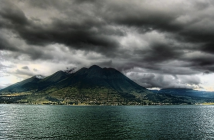On Thursday April 21, the Olympic torch for this summer’s games in Rio de Janeiro was lit in a ceremony in the Greek city of Olympia. The ceremony marked the beginning of the epic 15-week journey that the Olympic torch will make from southern Greece to the Maracanã stadium, the stage for the opening of Rio’s Olympic Games.
According to the International Olympic Committee, 98 % of the construction work for the event is complete. However, with less than 100 days until the start of the games, the concern lies with the infrastructure. Will Rio de Janeiro be able to support this event?
The flame was lit by Greek actress Katerina Lehou, before it was passed onto Greek gymnast and world champion Eleftherios Petrounias. The first Brazilian to be honoured with holding the torch was the former volleyball player and Olympic champion Giovane Gávio.
“These Games will be a message of hope in difficult times ,” said the president of the International Olympic Committee, Thomas Bach. After Greece, the torch goes will go to Switzerland, the home of the IOC, and finally Brazil. Before coming to Rio de Janeiro, the torch will go through 327 cities in Brazil’s five regions, take over 95 days, and will be held by 12,000 people.
The host city of this year’s Olympics, Rio de Janeiro, has been severely affected by the Brazilian economic crisis. Is the city prepared to receive tourists? On April 21, part of a bike path located in São Conrado neighborhood was hit by large waves that made it collapse. Two deaths were confirmed, and the indignation of the relatives of the victims is evident.
The bike path is located on a rocky cliff, bordered by the sea on one side, and a forest on the other. Engineers say that the path was destroyed due to structural failures, as it was known in advance that the bike path would be exposed to strong waves.
This cycle path was opened three months ago and although it will not feature in the Olympic contests, it is part of the city’s promised ‘Olympic legacy’. The world’s press highlighted the tragedy, with Britain’s ‘The Guardian’ stating that the fall of the bike path undermines the credibility of engineering and safety standards in the Olympic host city.
A few days before this tragedy, on the 13th, the IOC held a conference in Rio de Janeiro. The Vice President of the International Olympic Committee, Nawal El Moutawakel, said that even with the economic and policy situation facing the country, the Olympic facilities are 98 % ready.
Even with problems in infrastructure and the economic and political crisis, the Olympic Games will be an historic event in Brazil. Millions will closely follow the various competitions. Brazil’s tourism industry is preparing. Will Rio de Janeiro will indeed hold a great Olympic Games? The world will have to wait and see.





